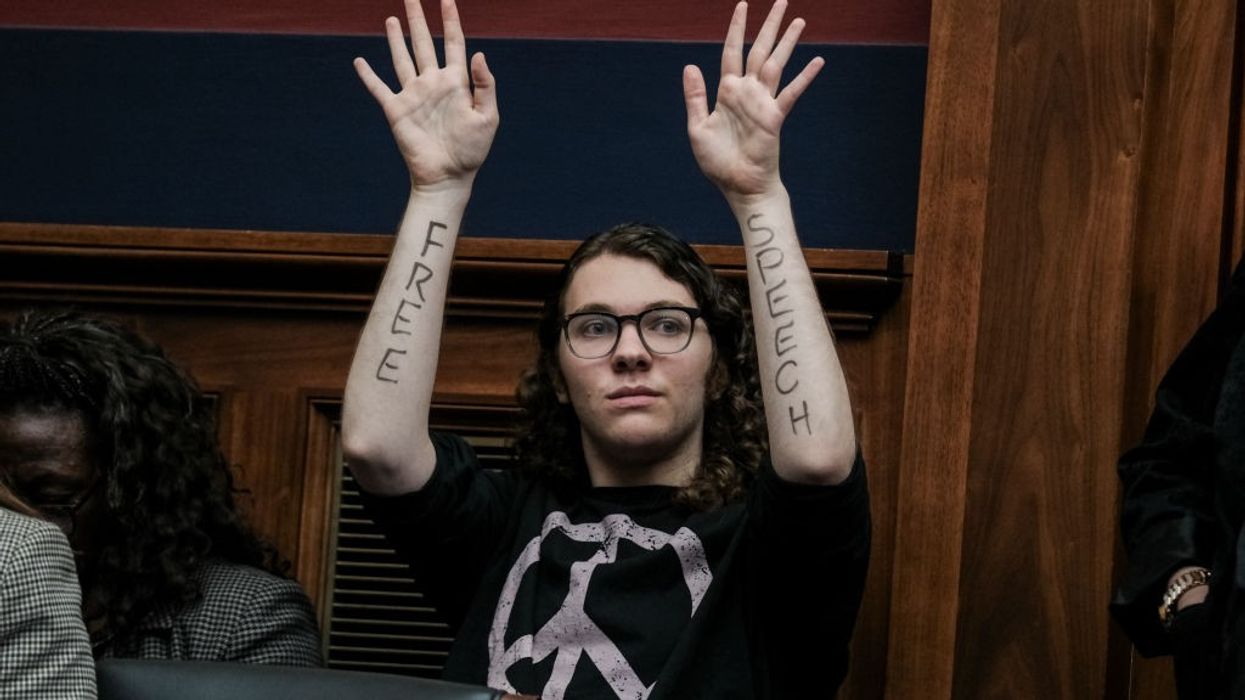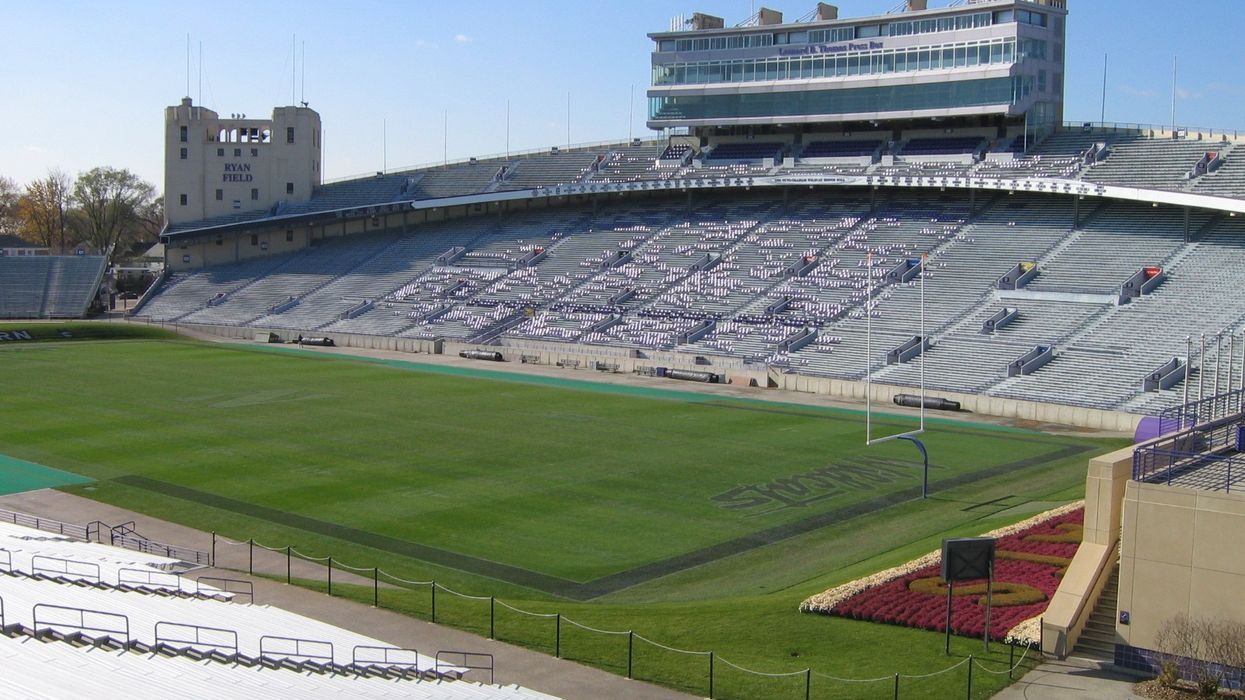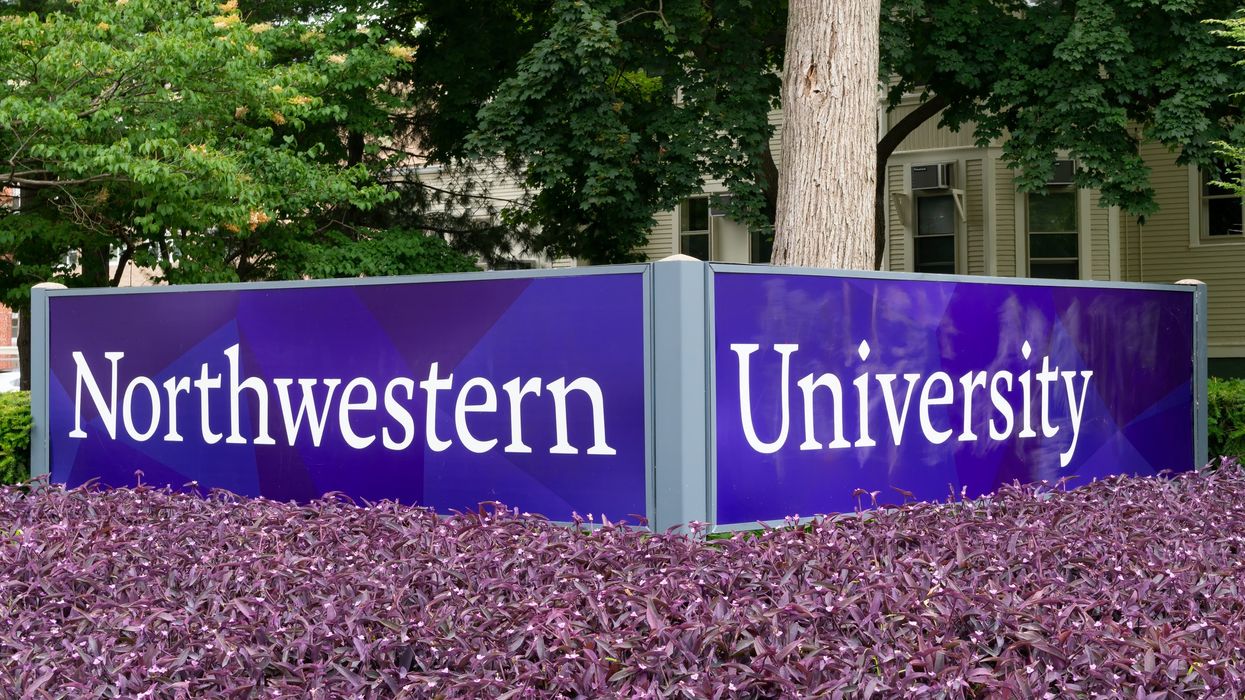Jewish Organizers Slam GOP Antisemitism Hearing as 'Offensive and Dangerous'
"These hearings are designed to stoke divisions so that we forget who is actually unsafe—the students of Gaza where every university has been destroyed," said one Jewish student who protested at UCLA.
As U.S. House Republicans held yet another hearing about antisemitism and higher education on Thursday, Jewish students and advocacy groups aimed to set the record straight on the threats they face and the largely peaceful protests against genocide.
"This hearing has nothing to do with keeping Jewish students on campus safe, and is solely designed as part of a broader campaign to silence anti-war activism and dissent on college campuses," declared Beth Miller, political director of Jewish Voice for Peace (JVP) Action. "MAGA Republicans are merging attempts to censor students and faculty speaking out for Palestinian rights with a broader culture war campaign against [diversity, equity, and inclusion], critical race theory, LGBTQ rights, and more."
Since Israel launched its U.S.-backed assault of the Gaza Strip in retaliation for the Hamas-led October 7 attack, students and faculty—many of them Jewish—have held demonstrations and set up encampments across the country, demanding that their colleges and universities divest from what critics call a genocidal war against Palestinians.
In addition to enduring violent crackdowns by law enforcement called in by administrators, campus protesters have faced consequences including suspension, expulsion, and not being allowed to graduate—as was the case for 13 seniors at Harvard University, which sparked a commencement walkout by hundreds of students on Thursday.
"I felt completely safe in the encampment until we were attacked by pro-genocide counterprotesters and the police."
The GOP-controlled House Committee on Ways and Means held a hearing on antisemitism and colleges in November—after which House Committee on Education and the Workforce Chair Virginia Foxx (R-N.C.) hosted one December, another last month, and a third on Thursday.
The latest hearing featured testimony from Gene Block, chancellor of the University of California, Los Angeles; Jonathan Holloway, president of Rutgers University; Michael Schill, president of Northwestern University; and Frederick M. Lawrence, secretary and CEO of the Phi Beta Kappa Society.
After students were injured and arrested when Los Angeles police in riot gear attacked a pro-Palestinian encampment at UCLA early this month, Graeme Blair, an associate professor of political science and member of Faculty for Justice in Palestine, said that "their blood is on Gene Block and the UC administration's hands."
Benjamin Kersten, a JVP member pursuing a Ph.D. in Jewish art history, said Thursday that "I am a Jewish student at UCLA who proudly participated in the protest calling on our university to divest from genocide. I felt completely safe in the encampment until we were attacked by pro-genocide counterprotesters and the police. These hearings are designed to stoke divisions so that we forget who is actually unsafe—the students of Gaza where every university has been destroyed."
CNN reported that during Thursday's hearing, Rep. Pramila Jayapal (D-Wash.) took aim at her Republican colleagues.
"Instead of using these hearings for political bullying purposes, which is what the majority seems to do—and if you want to be embarrassed about something, perhaps be embarrassed about the fact that this majority has not been able to govern in this cycle without being
saved by Democrats—I for one am interested in hearing and learning about what successful negotiation and de-escalation looks like in the context of protecting students and free speech," Jayapal said.
Unlike UCLA, Northwestern and Rutgers ended their encampments through negotiations with student protesters. According to The Associated Press, while Foxx said, "Mr. Schill and Dr. Holloway, you should be doubly ashamed for capitulating to the antisemitic rule breakers," the Northwestern president explained that "the police solution was not going to be available to us to keep people safe, and also may not be the wisest solution as we've seen at other campuses across the country."
Paz Baum, a JVP member set to graduate from Northwestern next year, said that "I joined the protests calling out Northwestern's complicity in the Israeli military's destruction of Gaza because as the descendant of people who fled genocide I understand that never again must mean never again for anyone."
"Despite attacks from counterprotests and condemnation from Congress, I will keep calling for an end to genocide," Baum added. "It is what Jewish tradition requires of me."
As of Thursday, Israel's assault on Gaza has killed at least 35,800 people and injured another 80,011, according to Palestinian officials. The war has also devastated civilian infrastructure and left survivors—many displaced multiple times over the past seven months—struggling to find food, water, and medical care.
The International Court of Justice has taken up a South Africa-led genocide case against Israel and International Criminal Court Prosecutor Karim Khan has applied for arrest warrants targeting Israeli Prime Minister Benjamin Netanyahu and Defense Minister Yoav Gallant as well as Hamas leaders Yahya Sinwar, Ismail Haniyeh, and Mohammed Deif.
As the international community and some progressive U.S. political leaders have increasingly expressed alarm about the war and accused Israel of genocide, many other politicians in the United States—across party lines—have backed Netanyahu's assault on Gaza, including with billions of dollars in military support. They have also repeatedly conflated antisemitism and criticism of the Israeli government, despite Jewish Americans' objections.
"It is offensive and dangerous that right-wing Republicans are putting on a show hearing under the pretense of protecting Jewish safety when in fact the only thing they are protecting are the profits of weapons companies and ongoing U.S. complicity in Israeli war crimes," JVP executive director Stefanie Fox said Thursday.
She argued that "Congress is using these hearings to distract from the very point of the principled anti-genocide student movement: The U.S. and Israeli governments continue this genocide despite mass opposition."


